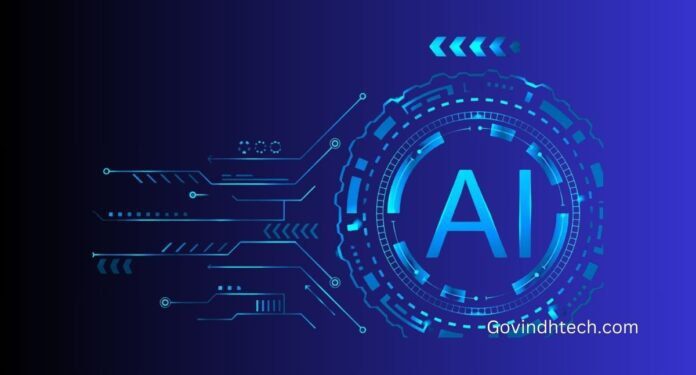Azure generative AI enhances accessibility in six ways
Generative AI stands out in the quickly changing world of technology, particularly in its potential to improve the lives of those who are disabled. Unprecedented progress in this area has been made in the last year, spurring important developments in accessibility. Generative AI is a hot topic not only because of its widespread convenience but also because of its significant effects on productivity and the ability of people with disabilities to participate more fully in the activities they love.
The advancements made possible by state-of-the-art tools like Microsoft Copilot, which perfectly capture the transformative power of generative AI in making technology truly inclusive, are rooted in this sentiment. Azure generative AI is being applied widely and significantly to improve accessibility; Microsoft Copilot is at the forefront of this effort. Here are six noteworthy instances where Azure generative AI is having an impact:
Microsoft Copilot: Everyone’s go-to assistive technology
At the vanguard of this revolution, Copilot, which is fueled by Microsoft Azure OpenAI Service, embodies the spirit of accessible assistive technology. Copilot and related generative AI tools are based on a straightforward but profound philosophy: accessibility is about customization to the needs of the individual. Copilot’s natural language processing capabilities make it easy for users to request or create adaptations that are tailored to their needs. Copilot demonstrates the inclusive potential of generative AI by helping people with various disabilities navigate color-coded charts and simplifying complex documents. Watch this video on Copilot and Accessibility to find out more.
Azure generative AI Vision assistant
This smartphone app, which was created with and for the blind community, helps with everyday tasks like understanding your surroundings, reading the mail, and identifying objects. By utilizing the capabilities of Microsoft Azure GPT-4 Turbo in conjunction with Vision, Seeing AI can produce incredibly comprehensive descriptions of images. In addition, users can use Seeing AI’s natural language capabilities to communicate with it and ask inquiries concerning a picture or document.
Audio descriptions driven by AI
Azure generative AI’s breakthroughs in GPT-4 Turbo with Vision open up a world of possibilities for improving video accessibility for people with low vision and blindness. More in-depth and easily understandable video descriptions are now possible thanks to improved computer vision capabilities. To express interest in our upcoming solution accelerator, please fill out this form if you’re interested in using computer vision to increase video accessibility within your company.
Augmentative and Alternative Communication (AAC)
Cboard, an AI for Accessibility grantee, uses Azure Neural Voices to add natural voices to their open-source picture board communication app. This advancement creates new opportunities for tailored communication, in conjunction with the use of Azure OpenAI to improve sentence structure.
Chatbots for mental health assistance
The utilization of Azure OpenAI by iWill in India to develop chatbots for mental health services demonstrates the potential of artificial intelligence in providing essential services to marginalized communities. iWill makes use of human-in-the-loop, content safety filtering, and AI to make sure AI is used responsibly for users who are mentally ill or at risk.
Microsoft Azure AI Studio provides accessible AI development
Microsoft is dedicated to enabling all developers, regardless of skill level, to work with AI. This dedication is evident in Azure AI Studio’s development and design, which was built with accessibility as a guiding concept. Disability activists say “nothing about us without us.” Enabling developers with disabilities to develop AI will help create the next wave of AI-driven accessibility solutions built by people with lived experience that can help more people.
NaturalReader served as the inspiration for customers
Through the use of Azure AI, NaturalReader, a Canadian AI text-to-speech service provider, has developed more realistic, lifelike voices and a useful mobile app, greatly improving educational accessibility for millions of students worldwide. This innovation doubled its global sales between 2022 and 2023 and attracted Ivy League student business. NaturalReader has reduced learning barriers by helping students with dyslexia and making educational materials more accessible and engaging. With a significant rise in daily users and app downloads, the company has successfully improved voice quality and accessibility at scale, highlighting the revolutionary effect of Azure AI on educational technology and the larger goal of ensuring that education is accessible to all.
Inspiration from a human: Paralympian Lex Gillette
Paralympian Lex Gillette of Team USA had a conversation with Microsoft about how technology supports him on a daily basis. In addition to being the current long jump world record holder, he has won five Paralympic medals, four world titles in the long jump, and eighteen national titles. In the long jump, he is the only athlete who has ever cleared the 22-foot mark who is completely blind. They are looking forward to following Lex’s journey as he gets ready for the 2024 Olympic Games in Paris.
Come to the Microsoft Ability Summit with us
Come learn more about the relationship between accessibility and Azure AI by attending the Microsoft Ability Summit on March 7, 2024. This free event will include talks about accessibility and artificial intelligence (AI), as well as co-design projects with EY and creative uses of AI to close the gap between people with and without disabilities.
Not only is generative AI a breakthrough in technology, but it also opens doors to inclusivity and empowerment. The possibilities are endless as they keep delving deeper and raising the bar for programs like Microsoft Copilot. The revolutionary effect that Azure AI has had on accessibility serves as a potent reminder of the positive effects that technology can have on people’s lives, especially for those who have the most difficulty gaining access to and using digital tools. Come along on this journey towards a future where technology genuinely makes the impossible possible, one that is more approachable and empowered.

